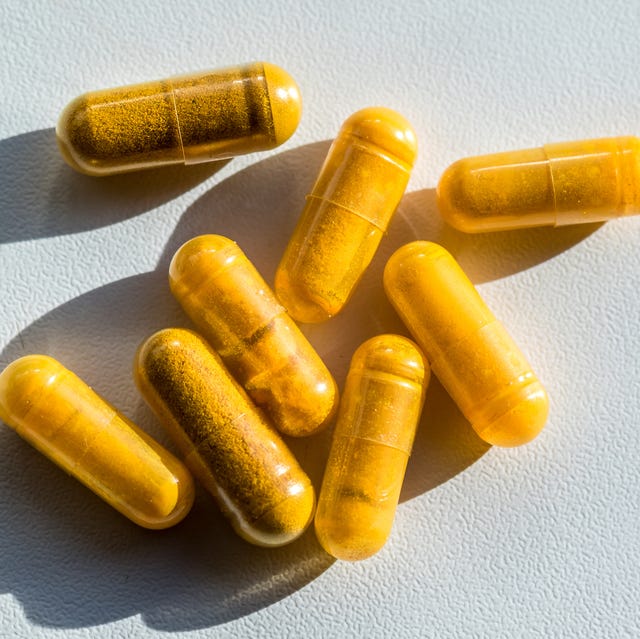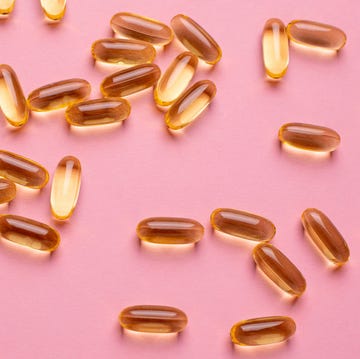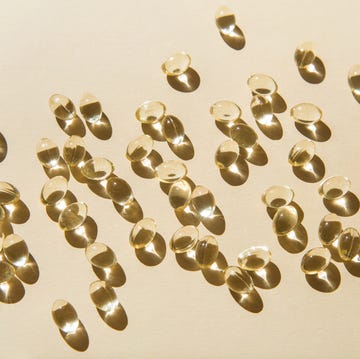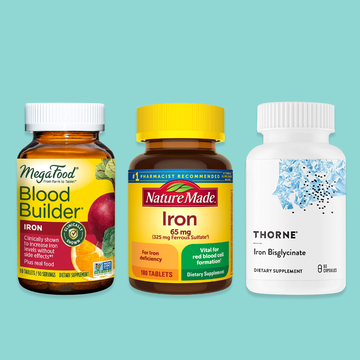9 Best Supplements to Fight Inflammation
Food always comes first, but these supplements may help you fill in the gaps.

We've been independently researching and testing products for over 120 years. If you buy through our links, we may earn a commission. Learn more about our review process.
Diet and lifestyle habits can play a big role in combatting chronic inflammation in the body, but anti-inflammatory supplements are gaining popularity as an alternative or complimentary therapy to fight inflammation. But not all inflammation is bad, and many supplements on the shelf make lofty claims when it comes to their proposed anti-inflammatory properties.
Our registered dietitians in the Good Housekeeping Institute researched the best anti-inflammatory supplements backed by science and interviewed a panel of experts for their recommendations. Read on for everything you need to know about inflammation, anti-inflammatory supplements and tips for shopping for high-quality supplements.
What is inflammation?
"Inflammation is an essential part of the body's immune response to injury, infection, or harm or stress," says Jaime Schehr, N.D., R.D., C.D.N., a nationally recognized expert in integrative medicine and nutrition. "There are two main types of inflammation: acute and chronic. Acute is a short-term, localized response that aims to eliminate the cause of cell injury, while chronic inflammation is a prolonged and systemic process that may contribute to various diseases."
Dawn Jackson Blatner, R.D.N., author of The Flexitarian Diet, likes to refer to inflammation as the body's emergency response team. "When there’s a threat, the inflammation response team comes to help. This is great in short-term situations like infections or injuries. However, when there’s long-term threats the inflammation response team is repeatedly triggered, on high-alert, and their constant activity starts to wear down the whole system and cause damage."
How does inflammation contribute to disease?
"Chronic inflammation can cause continuous damage to cells, tissues and organs, impairing their normal functions," Blatner says. "This means inflammation may damage joints, the digestive system, immune system, heart and arteries, and even the nervous system including the brain. Inflammation also can affect DNA, making us potentially more susceptible to various types of mutations and cancer."
But Blatner stresses that before jumping into specific supplements, it’s important to note the first step in reducing inflammation is incorporating healthy overall lifestyle habits such as getting enough sleep, moving your body, managing stress, not smoking, eating a well-rounded diet and staying hydrated with water and tea. "Unhealthy lifestyle choices make your body think there’s danger and the inflammatory process flares up. However, healthy lifestyle choices help your body feel there is no danger and the inflammatory process subsides," Blatner explains. "Just like in the analogy, when you are doing healthy things for your body, the inflammation emergency team doesn’t need to work overtime."
In addition to healthy lifestyle and diet habits, there are many science-backed supplements that can help minimize inflammation. Here are nine of the best anti-inflammatory supplements, recommended by experts.
Take note: Our nutrition pros stress that a supplement should do just that: supplement the diet, not replace high-quality, nutritious food and important healthy lifestyle practices. Check with your healthcare provider before starting any dietary supplement regimen.
Stefani (she/her) is a registered dietitian, a NASM-certified personal trainer and the director of the Good Housekeeping Institute Nutrition and Fitness Lab, where she oversees all nutrition and fitness-related content, testing and evaluation. She holds a master’s degree in clinical nutrition from New York University, as well as advanced certifications as a Women's Fitness Specialist and a Behavior Change Specialist. Stefani is dedicated to providing readers with evidence-based content to encourage informed food choices and healthy living. She is an avid CrossFitter and a passionate home cook who loves spending time with her big fit Greek family.
Rachel Lustgarten (she/her), M.S., R.D., C.D.N., is a registered dietitian in clinical practice in New York City. Her primary area of focus is medical nutrition therapy and weight control. Rachel’s passion is sharing her knowledge and expertise of food and nutrition’s role in overall health and wellness. She co-hosts the weekly “Primary Care Medicine” show on SiriusXM Doctor Radio, interviewing expert guests and fielding listener calls and questions about hot topics in health and nutrition. She served as a clinical dietitian at the Comprehensive Weight Control Center at Weill Cornell Medicine and served as an Advisor to the Weill Cornell’s Women’s Nutrition Connection monthly newsletter for 10 years. Rachel received a Master’s degree in Clinical Nutrition from New York University, graduating with honors.


Here's When to Pop That Magnesium Supplement

The Best Time to Take Vitamin B12

When Is the Best Time to Take Vitamin C?

Can Magnesium Really Help You Sleep Better?


















